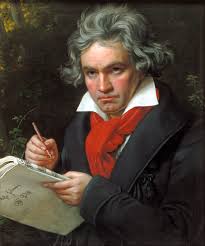 The German composer Ludwig van Beethoven was probably the first truly bad boy of music. He showed utter distain for discipline and authority and brusquely dismissed the conventions of aristocratic society. The formal court etiquette was particularly irksome to him, and even in matters of dress Beethoven seems to have been unwilling to show conformity. If unexpectedly called upon to perform on the piano, he sometimes refused outright, and he would break off playing if people showed their inattention. He composed revolutionary and seemingly incomprehensible music filled with shock disruptions of expected norms, explosive rhythmic energy, euphoric excitement, and intense lyrical beauty that took listeners then and now on a psychological and spiritual journey. When his brother admonished him for refusing to write music for popular appeal and consumption, Beethoven simply dismissed him with the words “I am the proud owner of a brain.” In artistic matters, he accorded the greatest respect to himself and other artists, yet he had very little use for common humanity. But here is the interesting thing, although a sense of isolation and irritation informed his interaction with society at large, Beethoven’s music bares none of that frustration. If anything, it exudes confidence, assurance, enthusiasm and optimism.
The German composer Ludwig van Beethoven was probably the first truly bad boy of music. He showed utter distain for discipline and authority and brusquely dismissed the conventions of aristocratic society. The formal court etiquette was particularly irksome to him, and even in matters of dress Beethoven seems to have been unwilling to show conformity. If unexpectedly called upon to perform on the piano, he sometimes refused outright, and he would break off playing if people showed their inattention. He composed revolutionary and seemingly incomprehensible music filled with shock disruptions of expected norms, explosive rhythmic energy, euphoric excitement, and intense lyrical beauty that took listeners then and now on a psychological and spiritual journey. When his brother admonished him for refusing to write music for popular appeal and consumption, Beethoven simply dismissed him with the words “I am the proud owner of a brain.” In artistic matters, he accorded the greatest respect to himself and other artists, yet he had very little use for common humanity. But here is the interesting thing, although a sense of isolation and irritation informed his interaction with society at large, Beethoven’s music bares none of that frustration. If anything, it exudes confidence, assurance, enthusiasm and optimism.
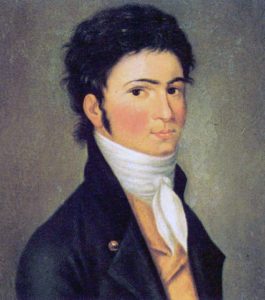 When he first experienced a loss of hearing, with otosclerosis now suspected as the underlying disease of his deafness, Ludwig van Beethoven was predictably devastated. His initial tendency was to accept his affliction with resignation. Yet, resignation clearly wasn’t his cup of tea as he kept mentioning alternatives. For one, there was the possibility of suicide, or the hope that a woman’s love might rescue him from his depression. In the end, as we all know, Beethoven decided to immerse himself in his art, “the goal which I feel but cannot describe” as he once wrote. A famous proverb tells us that a healthy mind resides in a healthy body. If such folklore is to be believed, we can say with a high degree of certainty that Ludwig van Beethoven wouldn’t be a textbook case. Loss of hearing aside, Mr. B. suffered from abdominal pain and chronic inflammatory bowel syndrome from childhood until his death. He also suffered from arrhythmia of the heart, a number of rheumatic diseases and it had long been rumoured that he contracted syphilis. And let’s not forget the fact that Beethoven was dependent on alcohol; he consumed enough wine for sufficiently long periods to seriously damage his liver and to affect some significant behavioural changes.
When he first experienced a loss of hearing, with otosclerosis now suspected as the underlying disease of his deafness, Ludwig van Beethoven was predictably devastated. His initial tendency was to accept his affliction with resignation. Yet, resignation clearly wasn’t his cup of tea as he kept mentioning alternatives. For one, there was the possibility of suicide, or the hope that a woman’s love might rescue him from his depression. In the end, as we all know, Beethoven decided to immerse himself in his art, “the goal which I feel but cannot describe” as he once wrote. A famous proverb tells us that a healthy mind resides in a healthy body. If such folklore is to be believed, we can say with a high degree of certainty that Ludwig van Beethoven wouldn’t be a textbook case. Loss of hearing aside, Mr. B. suffered from abdominal pain and chronic inflammatory bowel syndrome from childhood until his death. He also suffered from arrhythmia of the heart, a number of rheumatic diseases and it had long been rumoured that he contracted syphilis. And let’s not forget the fact that Beethoven was dependent on alcohol; he consumed enough wine for sufficiently long periods to seriously damage his liver and to affect some significant behavioural changes.

The house of birth of Ludwig van Beethoven in Bonn, Germany.
The German composer Ludwig van Beethoven is frequently seen as the original revolutionary, a man who freed music and who could help to liberate the politically oppressed and economically marginalised as well. As has been observed, Beethoven’s vision still speaks to a majority of music lovers with a directness and urgency unmatched by any other composer. And as an eminent musicologist has observed, “Beethoven was determined to touch mankind as nakedly as possible.” It goes without saying that Beethoven’s music has confusingly served opposing ideologies, and it has been variously aligned to countless political and social agendas. And let’s not forget that it has been subjected to the naive whims of the kitsch industry. Regardless, as Gustavo Dudamel has suggested, “Beethoven’s music has an elemental impact that is of fundamental importance for young people. A lot of the children in the Simón Bolívar Youth Orchestra come from the street… But when they play the music of Beethoven, they have something special. They all share his hope.”
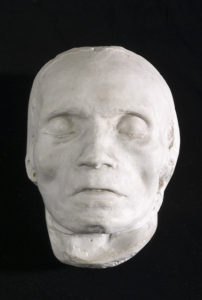
Beethoven’s death mask
For much of Asia, Beethoven is music’s freedom fighter. Young people across the continent have fully embraced the image of the composer who went through turmoil, obstacle, and difficulties, but was triumphant in the end. As exemplified in Beethoven’s freedom narrative found in the Ninth Symphony, humanity emerges from primordial emptiness, and via a process of self-actualization and identity formation arrives at complete and utter triumph. Ludwig van Beethoven essentially realized the potential for freedom and optimism within all of us by transcending the mundane and the narcissistic. He transports us into a world of boundless imagination and optimism, providing a mirror, in fact, in which humanity is constantly reflected. Probably best of all is the notion that Beethoven and his music can be interpreted and approached in endless ways depending on personal interests, agendas, experiences and education; they are an open universe that can be explored anew from generation to generation. And to be sure, as our world is becoming increasingly fractured and polarized on political, economic, environmental and social issues, humanity needs Ludwig van Beethoven’s optimism even more urgently today than it did 200 years ago.

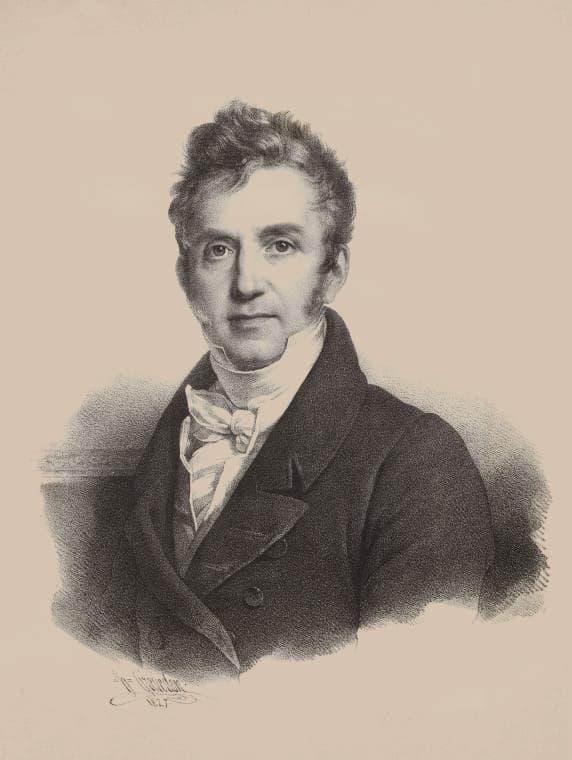
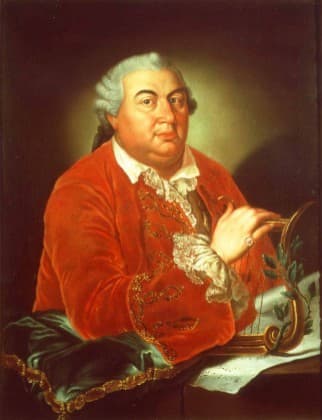
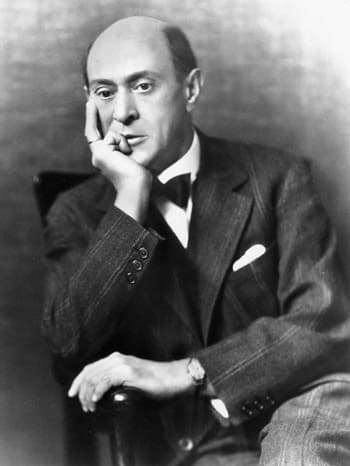
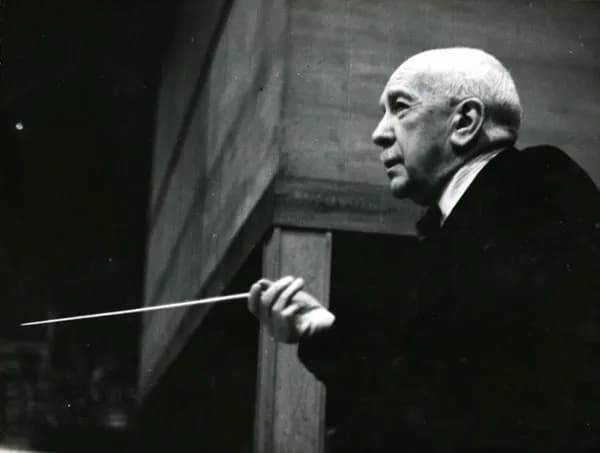
Nice article on a non- conforming man. Thanks Herr Predota for another interesting take on our music icons.